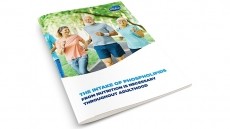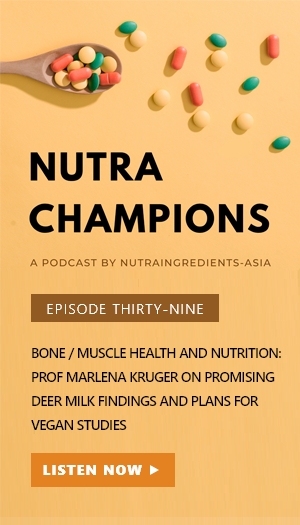Standardised guidelines for vitamin D testing and supplementation could aid IBS treatment for kids

Researchers from the PEDiatric Australasian Gastroenterology REsearch NEtwork (PEDAGREE) conducted a survey on vitamin D testing and supplementation for children with IBD. They found that standardised guidelines for clinicians caring for children with IBD throughout Australasia are required to maximise the benefits of vitamin D for patients.
“Patterns of vitamin D testing and supplementation for children with IBD have been shown in this study to be variable throughout Australasia,” observed researchers in the Journal of Gastroenterology and Hepatology Foundation.
“The opinion of adherence to vitamin D treatment is equivocal. While the respondents felt there to be a clear benefit to optimising vitamin D levels, this was not related to a perceived benefit to disease activity.”
Optimal amounts of vitamin D offers benefits that include reduced disease activity, less frequent relapses and lower postoperative recurrence. However, international guidelines for vitamin D testing and supplementation provide inconsistent recommendations.
Therefore, the researchers wanted to review current practices of vitamin D testing and supplementation for children with IBD through a survey.
Members of the Australian Society of Pediatric Gastroenterology, Hepatology and Nutrition were invited to complete an online survey. Respondents were asked to provide information on frequency of vitamin D testing and supplementation, adherence, and benefits of vitamin D to children with IBD.
Thirty-two (54%) pediatric gastroenterologists completed the survey: 27 (84%) from Australia and 5 (16%) from New Zealand.
The majority (90%) tested vitamin D levels at diagnosis and follow up, although testing frequency varied (1–3 times/year) and only 8 (28%) tested seasonally. While 28 (88%) recommended supplementation based on serum levels, inconsistent cutoff values were used.
Most respondents (n = 27) recommended Stoss (single dose) or vitamin D3 (daily for 8–12 weeks). The majority (84%) rated the overall benefit of optimal vitamin D levels at ≥6/10, although fewer (54%) rated the benefit to disease activity at ≥6/10.
While some clinicians referred to the local, national and international guidelines, it did not appear to standardise their approach to testing or supplementation.
For example, the NZ guideline does not include guidance on optimal levels to be attained or supplementation, and the RCH guideline’s recommended serum cutoff level for supplementation is lower than recommended for anti-inflammatory benefit for children with IBD.
“This non-standardised approach to guidelines may be a reflection of the quantity of evidence available to support definitive statements, as well as the complexity involved in writing and updating guidelines or consensus statements.”
The researchers acknowledged that this study had limitations such as sampling bias and the small number of NZ-based clinicians surveyed. However, they concluded from their findings that standardised guidelines for testing and supplementation are required to optimise the benefits of vitamin D for children with IBD.
“In light of the current available guidelines providing conflicting statements on the optimal testing schedule and supplementation regimens, it could be seen that consensus statements developed by Australasian paediatric gastroenterologists may optimise the care of children with IBD in this diverse geographical region,” said the researchers.
Source: Journal of Gastroenterology and Hepatology Foundation
DOI: https://doi.org/10.1002/jgh3.13041
“Patterns of vitamin D testing and supplementation for children with inflammatory bowel disease in Australasia”
Authors: Angharad Vernon-Roberts and Andrew S Day.
We will be taking a closer look at Clinical Nutrition in our Growth Asia Summit 2024 this coming July, which will feature insights from a wide range of industry leaders and experts. Don't miss out – register here today!



















